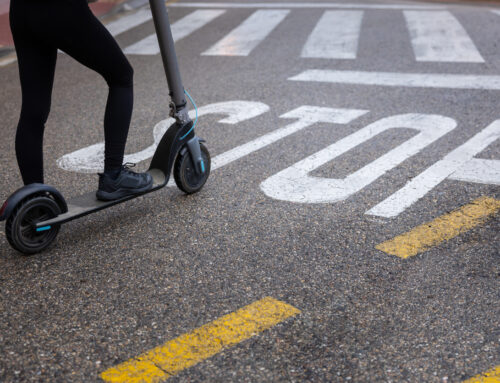7 Signs Your Teenager Is Drinking & How to Help Them

The adolescent years are full of transition. Just as puberty is changing a young person’s body, increased exposure to adult realities begins changing their worldview. Teens realize they’re no longer children when parents and teachers ask them to take on more responsibility, but they don’t have all the freedom of adulthood. It’s no wonder many teens experience confusion, anxiety, and depression during this time. Some young people turn to alcohol to try and copy with these challenging feelings.
Although recent studies show that the number of young people who drink alcohol has decreased over the last 10 years, the 2021 Youth Risk Behavior Survey found that 23% of high school students still consume alcohol. That’s nearly one out of every four students! Do you know how to tell if your child is drinking alcohol? Keep your eyes open for these warning signs.
7 Signs Your Teenager Is Drinking
- Changes in mood – If you have teenagers, you know that moodiness may be related to their transitional development stage. However, if your teen starts having sudden outbursts of anger, seems more irritable than usual, or becomes overly defensive about their behavior, they may be drinking alcohol.
- Problems at school – School can be challenging for teens as courses become harder and teachers require more work from them. Low grades may simply be a sign that your child needs a tutor, but if your teen is also skipping class or getting into trouble with teachers and administrators, there may be a more serious issue behind the school problems.
- Rebelling against authority – A certain amount of rebellion is natural during the teenage years as children establish identities separate from their parents. If that rebellion becomes extreme (such as routinely breaking family rules) or destructive (such as vandalizing property or breaking laws), you have reason to suspect that your teen may be participating in alcohol misuse.
- Changing friends – While it’s normal for friendship groups to change as teens find new interests or take different classes from their childhood friends, it’s important for parents to meet their teens’ new friends or at least learn something about them. If your teen is “hiding” their new friends from you, you need to find out why.
- Apathetic attitude – Some teens have a naturally casual attitude about their appearance and/or school that may annoy parents but typically isn’t a big deal. However, if your teen suddenly loses interest in activities they used to enjoy, has no energy or enthusiasm for anything, or neglects their hygiene and appearance, these could be signs your teenager is drinking alcohol.
- Physical or mental problems – Poor concentration, bloodshot eyes, slurred speech, and memory lapses are just a few symptoms of a larger problem. If your teen has any of these, they may be using alcohol.
- Presence of alcohol – If you smell alcohol on your teen’s breath or clothes or find it in their backpack or bedroom, your teenager is most likely consuming alcohol, possibly on a regular basis.

How to Help Them
If you suspect your teen is drinking alcohol, it’s important to address the issue immediately. Besides being illegal, underage drinking is dangerous. It can impair judgment, induce risky behaviors (such as impaired driving), decrease brain development, lead to alcohol use disorder, or cause death.
The first thing to do is talk with your teen about the dangers of underage drinking. Believe it or not, they care what you think and will listen to you. In fact, our recent State of Underage Drinking Survey revealed 92.5% of students agreed that it would help prevent underage drinking if parents talked more to their children about alcohol and the dangers of underage drinking. They need to understand that you care about them, so don’t waste time blaming yourself or your teen for their underage drinking. Focus on helping them stop. Talk it Out NC’s underage drinking resources can help you Start the Conversation.
After talking with your teen, if you feel they need treatment for a mental health or substance misuse issue, you can quickly locate a local health provider with the Behavioral Health Treatment Services Locator from the Substance Abuse and Mental Health Services Administration (SAMHSA).
Talk it Out
Even if you don’t see any signs your teenager is drinking alcohol, there’s a good chance they’ve been exposed to alcohol in person or through movies and social media. They need you to give them the facts about underage drinking. Talk it Out NC can help. Visit our website and find tips to help you Start the Conversation today!



